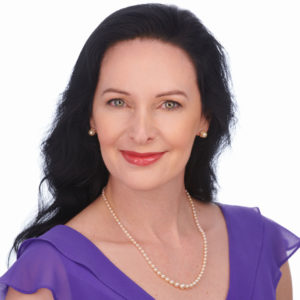
“Trading is about moving forward. Inch by inch, refusing to give ground.” – Louise Bedford
Louise says:
“When I started trading in 1990, my primary goal was to survive long enough so the stock market could reveal its secrets. Today, I know that money is made as a by-product of following a sound trading plan and having high levels of self-awareness. I believe that trading is about moving forward… inch by inch, refusing to give ground, and learning how to manage your emotions.
In this episode, you will learn the following:
- How to control your emotions when trading.
- Why the fear of success can trip you up in trading.
- Why learning to emotionally regulate will directly impact your profitability.
Essential Listening Points:
[00:00:00] – Learning how to manage your emotions is important to not only your profitability but also your longevity as a trader. Louise has been a trader since 1990 and is the best-selling author of five books on the stock market. As a trader, sometimes it’s hard to control your emotions when you’re flying high. Ed Seykota’s achievements rank him as one of the best traders of all time. He uses an Anti-Martingale system to maximise his trading returns.
[00:15:40] – There are many things to be afraid of in the markets, such as taking a loss or learning a new skill, fear of failure, and fear of what others think of your decisions. But the most common one is the fear of success. Psychologists say that if you can downregulate strong emotions and think with clarity, it will help you become more profitable. After 30 years of trading, Louise shares her tips on how to be a successful trader. She recommends reading books and listening to podcasts to help you discipline your mind and discipline yourself.
 About Louise Bedford
About Louise Bedford
Louise Bedford is a highly accomplished and experienced trader, educator, and author, with over 30 years of experience in the financial markets. She is the co-founder of The Trading Game, and is known for her unique approach to teaching trading psychology and market analysis.
Louise has authored several successful trading books, including Trading Secrets, Charting Secrets, and The Secret of Candlestick Charting. She is also a regular contributor to Ausbiz, the Your Trading Edge magazine, and is the host of the Master Your Trading Mind Hub at IG Markets Australia.
To get in touch with Louise
Facebook: https://www.facebook.com/TradingGame/
Twitter: https://twitter.com/TheTradingGame
LinkedIn: https://au.linkedin.com/in/louise-bedford/
Youtube: https://www.youtube.com/tradinggame
Research Links Mentioned in the Episode
The 3 responses of fight, flight and freeze, of course, apply in the animal world and pre-dispose some animals with particular tendencies to some poor health outcomes (https://www.sciencedirect.com/science/article/abs/pii/S0149763404001484)
It’s fine to feel strong emotions. Actually, this is correlated with better trading decisions. (Seo and Barrett (2007)).
If you can calm the heck down, then you’re more likely to make more money. (https://www.bayes.city.ac.uk/__data/assets/pdf_file/0020/126722/OCreevy.pdf, and Lo, Repin and Steenbarger (2005)).
Re-appraisal research: (https://psycnet.apa.org/record/2015-42882-004).
Emotional regulation: (https://academic.oup.com/scan/article/14/10/1109/5610277?login=true)
Trading for excitement (like an addicted gambler). (https://citeseerx.ist.psu.edu/viewdoc/download?doi=10.1.1.640.4364&rep=rep1&type=pdf “Under Gervais and Odean’s biased learning model, it is possible for unsuccessful traders to become overconfident, and more active traders, if their learning bias is sufficient. Thus an increase in trade size by unprofitable day-traders is contrary to the rational learning models but consistent with biased learning.”)
A study called: ‘Thinking, feeling and deciding: The influence of emotions on the decision making and performance of traders’ is particularly telling. It says: “Effective emotion regulation seems to be a critical success factor in trading, for our findings suggest that the strategies for emotion regulation adopted by expert, higher performing traders are qualitatively different from those of lower performing traders”.
“Less expert traders engage either in avoidant behaviors, such as walking away from the desk, or invest significant cognitive effort in modulating their emotional responses.” And “higher performers are more inclined to regulate emotions through attentional deployment and cognitive change and may display a willingness to cope with negative feelings in the interests of maintaining objectivity and pursuing longer-term goals.” (https://onlinelibrary.wiley.com/doi/full/10.1002/job.720)
Interoceptive Ability Predicts Survival on a London Trading Floor – https://www.nature.com/articles/srep32986?source=content_type%3Areact%7Cfirst_level_url%3Aarticle%7Csection%3Amain_content%7Cbutton%3Abody_link
For more content that is similar to this, refer to: https://www.ig.com/au/master-your-trading-mind
Photo by Markus Spiske on Unsplash



